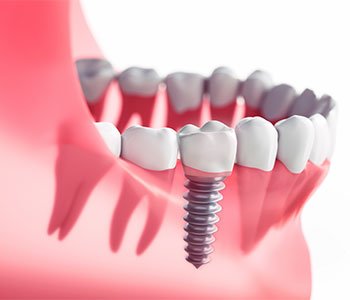Teeth implants are a common treatment used for replacing teeth, aiding in the correction of missing and damaged teeth. They require a titanium root which is used to reproduce the root section of the former natural tooth. The natural tooth itself is then replaced with a dental crown on top. They sound sturdy, don’t they? So, how long do they last for? We take a closer look…
An average tooth implant will typically last in the region of 15 years, and this is backed up by worldwide data which shows 95% of all dental implants lasting for this period of time. However, it is possible for teeth implants to last well beyond this period, although due to several factors they rarely last over the 20-year period.
Key factors affecting the lifespan of teeth implants
There are several key factors which reduce the overall tooth implant lifespan:
Reduction in oral hygiene standards
It is common for individuals who receive a tooth implant to treat them differently to how they would their former natural tooth. Subsequently, it is possible that an individual’s oral hygiene conduct may dip below former standards and poor oral hygiene begins to set in. This can be extremely detrimental to the implant, as without great oral hygiene the titanium root can fail to successfully fuse to the gum. In this scenario the implant may be rejected, and it could potentially fall out early.
Lifestyle choices
The lifestyle choices of those with tooth implants are also essential, and certain choices can cause a dramatic reduction in the lifespan of the implant. Smoking is among the biggest threats to an implant; this is due to elevated nicotine levels leading to a reduction in blood flow to the implant area. In turn, this can negatively impact the chances of successful implant integration. Subsequently, it is essential to all together stop or at least reduce the intake of nicotine when receiving an implant and during the integration process.
Medical conditions
An individual’s pre-existent medical conditions can also play a key role in how long a tooth implant can survive. This includes diabetes and a compromised immune system, which can greatly increase the chance of a tooth implant being rejected by the body. In turn this can cause potential infections following the tooth implant procedure and several further issues. Consequently, your pre-existent medical conditions should be discussed in depth with the dentist to allow them to be evaluated and any potential impact on the tooth implant understood beforehand.
How can I maximise the lifespan of my tooth implant?
The ways of maximising the lifespan of a tooth implant are highly similar to maximising the lifespan of your natural teeth. Brushing a minimum of twice a day for approximately two minutes as well as undertaking daily cleaning between implants and/or natural teeth is always recommended. This will safeguard the implants, and ensure they remain hygienic, it also reduces the chances of any plaque building up. Regular dental check-ups will ensure that your dental implant is evaluated often, and it is integrated well. This will also allow the dentist to identify any issues early and any damage that occurs to the crown. By spotting any issues early then they can be halted early avoiding any major issues to develop which may require implant replacement.
We have treated thousands of happy clients here at The Denture & Implant Clinic, but don’t just take our word for it, see what our patients think about their dental implant experience.















